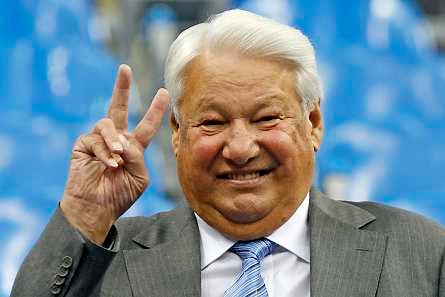Boris Yeltsin, born on February 1, 1931, in Butka, Russia, was a pivotal figure in Russian history, serving as the first President of the Russian Federation from 1991 to 1999. His tenure marked the tumultuous transition from Soviet rule to a more democratic and market-oriented Russia. Yeltsin’s leadership was characterized by significant reforms, political upheavals, and personal controversies, leaving a mixed legacy.
Yeltsin emerged as a key reformer during the late 1980s. He initially joined the Communist Party but grew increasingly critical of its conservatism and inefficiency. In 1985, Mikhail Gorbachev appointed Yeltsin as the head of the Moscow City Party Committee, where Yeltsin began implementing bold economic reforms and anti-corruption measures. However, his aggressive stance and clashes with party hardliners led to his removal from this post in 1987.
Despite this setback, Yeltsin’s popularity soared, especially among those yearning for change. In 1989, he was elected to the newly formed Congress of People’s Deputies of the Soviet Union. His political momentum continued, and in June 1991, he was elected as the President of the Russian Soviet Federative Socialist Republic, part of the Soviet Union. His presidency began just months before the Soviet Union’s dissolution in December 1991, making him the leader of the newly independent Russian Federation.
Yeltsin’s presidency was marked by dramatic changes. He implemented “shock therapy” economic reforms, which aimed to rapidly transition Russia from a state-controlled economy to a free-market system. These reforms led to widespread privatization but also caused severe economic hardship, hyperinflation, and a significant drop in living standards for many Russians. The economic turmoil fueled social discontent and political instability.
One of the most notable moments of Yeltsin’s presidency was his role in the 1991 coup attempt by hardline communists. Yeltsin famously stood atop a tank outside the Russian parliament, rallying the public and military against the coup plotters, a defining moment that bolstered his image as a defender of democracy.
However, Yeltsin’s later years in office were marred by health problems, allegations of corruption, and declining popularity. His decision to use military force to quell a rebellion in Chechnya further tarnished his reputation. On December 31, 1999, Yeltsin resigned unexpectedly, naming Vladimir Putin as his successor.
Boris Yeltsin’s legacy is complex. He is credited with dismantling the Soviet system and laying the foundations for a new political and economic order in Russia. However, his tenure also saw significant challenges, including economic hardship and political strife. Yeltsin passed away on April 23, 2007, but his impact on Russian history remains profound and controversial.



Recent Comments